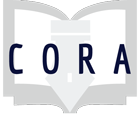Assignment
Politics of Citation Discussion Activity
Using three example excerpts on citation practice and the experiences of specific scholars, attendees will interrogate and discuss how whiteness and other oppressions impact citation practice using a series of questions.
| Attachment | Size |
|---|---|
| 63.08 KB | |
| 63.16 KB | |
| 63.25 KB |
By Example Number
Example 1:
- Attendees will identify definitions of erasure and punitive and opportunistic plagiarism
- Attendees will reflect on oppression as perpetrated through traditional, textual citation practice
Example 2:
- Attendees will examine the ways in which indigenous scholars navigate peer review
- Attendees will reflect on oppression as perpetrated through traditional, textual citation practice
Example 3:
- Attendees will examine the pros and cons of citing problematic scholars
- Attendees will develop a strategy for citing problematic scholars bolstered by their personal ethics
- Attendees will reflect on oppression as perpetrated through traditional, textual citaiton practice
Information Literacy concepts:
Individual or Group:
Ability Level:
This activity was done during a citation panel event: https://cal.lmu.edu/event/citations2020#.XmA4O5NKhTY. This was 25 minutes (15 minutes to read and discuss in pairs and 10 minutes to share with the larger group). Discussion was facilitated.
When facilitating larger discussion, provide summary of each reading as some groups may need context. Review each questions so attendees can share notes taken. Save last question of each example for a shared discussion (each example has same last question).

